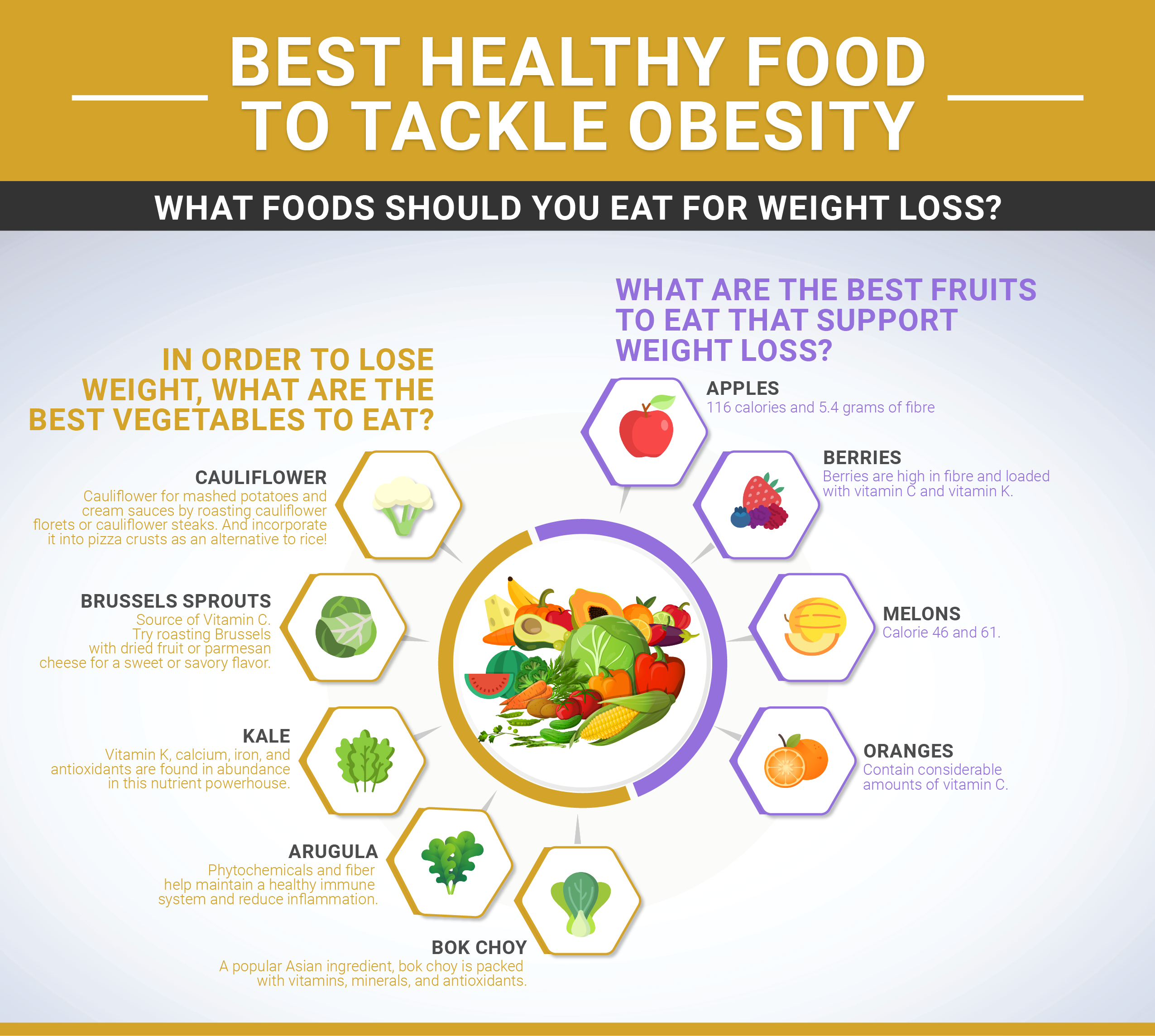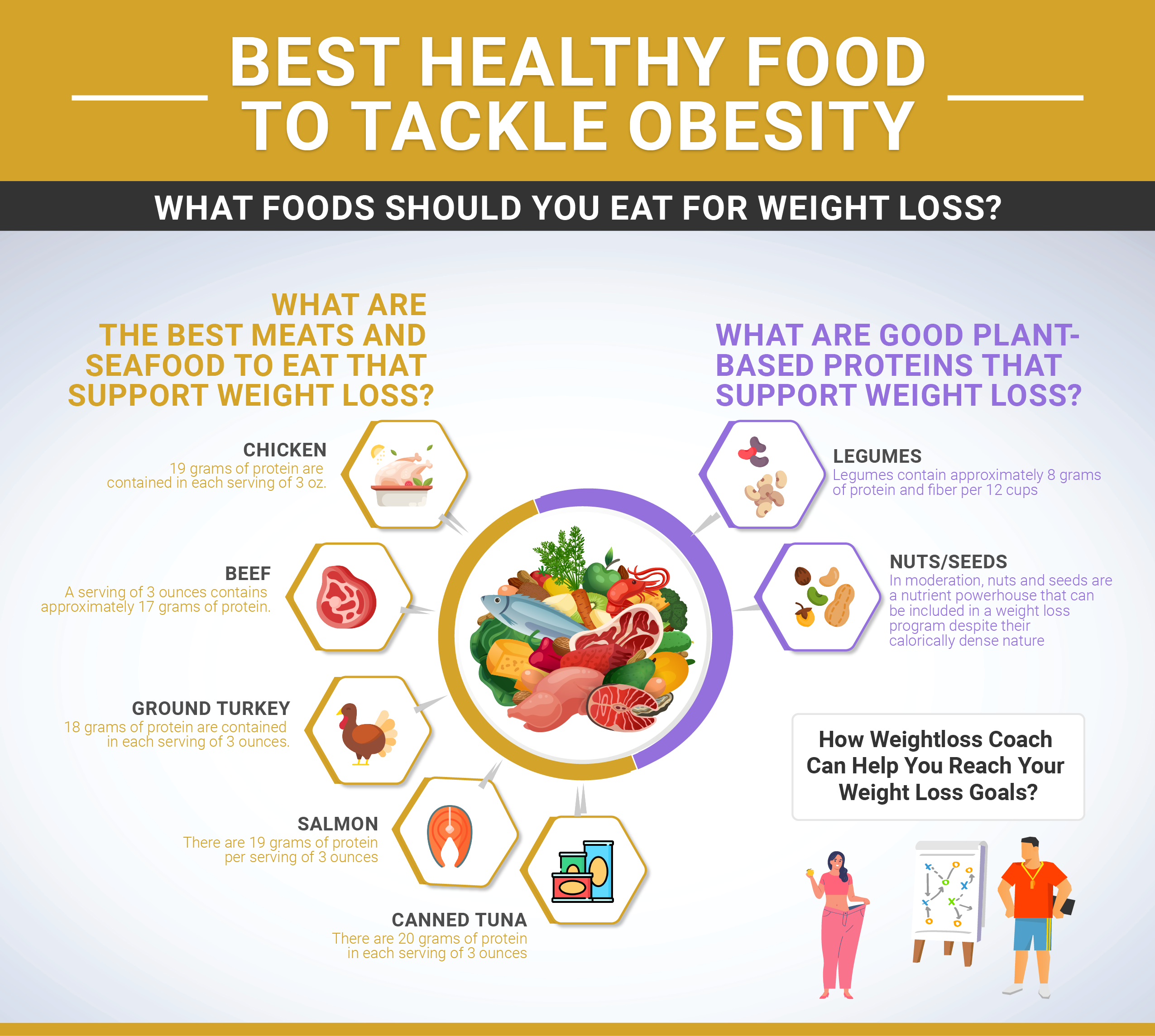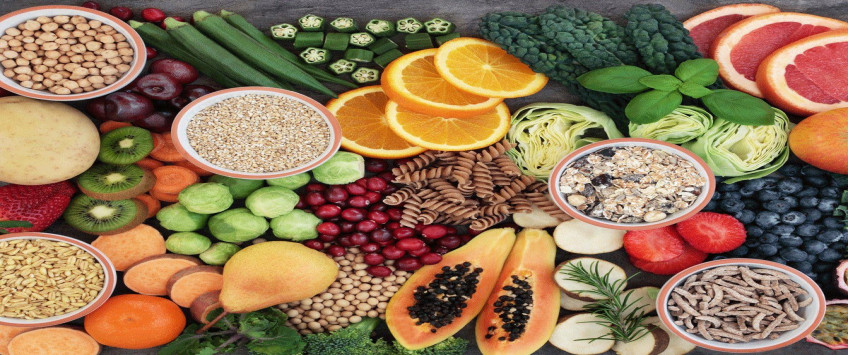The latest diet trends can be overwhelming and ultimately unsustainable long-term, particularly regarding health, wellness, and tackling obesity. Research-based guidelines regarding obesity management support healthy foods for weight loss and maintenance.
. Calories are usually counted in diets, and eating less is the focus. Mainstream diets ignore foods' nutritional profile, promoting overall health and wellness. A diet that restricts nutrient intake can have serious health consequences. Maintaining good health and a healthy weight requires eating wholesome, nutritious foods.
Below is a list of nutrient-dense and satisfying weight-loss-friendly foods. Individuals and families can utilise this resource at home, and practitioners support individuals on their weight loss journey in the healthcare setting.

Instead of fruit juices, choose whole fruits such as:
Apples contain 116 calories and 5.4 grams of fibre on average. At a low-calorie cost, apples are tasty and promote fullness.
It has been shown that berries may aid in lowering inflammation, decreasing cholesterol levels, and reducing blood pressure. Berries are high in fibre and loaded with vitamin C and vitamin K.
If you are trying to lose weight, melons will help you stay hydrated, as they are low in calories but high in water content. The calorie content of a cup of melon, such as cantaloupe, lies between 46 and 61.
In addition to being high in fibre, low in calories, and promoting satiety, oranges also contain considerable amounts of vitamin C. Eating whole fruits rather than drinking fruit juices, such as orange juice, may result in better fullness and lower calorie intake, according to research.
According to dietary Guidelines, adults should consume at least 2 128 cups of vegetables daily. In terms of serving size, one cup of raw or cooked vegetables, such as broccoli or cauliflower, is equivalent to one cup of vegetables. Fill half of your plate with non-starchy vegetables when eating lunch or dinner. Among vegetables high in vitamin C and minerals, fibre, and low in calories are:
In addition to steaming, cauliflower can be prepared in various other ways. You can substitute cauliflower for mashed potatoes and cream sauces by roasting cauliflower florets or steaks. Also, you can incorporate it into pizza crusts as an alternative to rice!
Brussels sprouts have low calories and are a good source of Vitamin C. Try roasting Brussels with dried fruit or parmesan cheese for a sweet or savoury flavour.
Vitamin K, calcium, iron, and antioxidants are abundant in this nutrient powerhouse. Salad greens are delicious. The hearty green of kale doesn't wilt quickly for meal prep. You can pack kale for the week as a green lunch.
Here's another green that's packed with nutrients. Phytochemicals and fibre help maintain a healthy immune system and reduce inflammation. Peppery undertones make arugula unique. Raw arugula can be used in salads, sandwich toppings, and wraps.
A popular Asian ingredient, bok choy is packed with vitamins, minerals, and antioxidants. Bok choy can be eaten raw alongside dips like hummus to give it that crunch. Make a stir fry or soup with bok choy or shred it in salads.
Various fruits and vegetables should make up half of your plate, according to the Dietary Guidelines for Americans and MyPlate.gov. Any fruit or vegetable, fresh or frozen, counts! Instead of sugar-based syrups, choose canned fruits that are packed in water. If you want frozen vegetables free of high-calorie sauces, choose those that are not prepared in them. According to Eatright.org, eating right is simple.
Evidence shows that the nutrient profile of canned and frozen fruits and vegetables is similar to that of fresh fruits and vegetables. Due to a shorter processing time after harvest, frozen produce may sometimes have a higher nutrient density than fresh produce.
Eating lean cuts of meat and fish can contribute to weight loss when part of a balanced diet. A healthy fat source, including omega-3 fatty acids, can be found in fish such as salmon and tuna, which are rich in protein.

According to the USDA, a lean protein source should comprise 14% of your plate. Below are some examples:
Approximately 19 grams of protein are contained in each serving of 3 oz. There are several ways in which chicken can be used as a source of lean protein. Toss your chicken into salads, soups, and stews by roasting, glazing, marinating, stuffing, or marinating it.
A serving of 3 ounces contains approximately 17 grams of protein. Red meat has a bad reputation, but lean beef, when consumed in moderation, provides an excellent source of protein and iron.
Approximately 18 grams of protein are contained in each serving of 3 ounces. You can substitute ground turkey for beef by choosing 85% lean or higher varieties. Another versatile ingredient is ground turkey, which can be used to make lean burgers, tacos, soups, and stews!
There are 19 grams of protein per serving of 3 ounces. According to the Dietary Guidelines for Americans, adults should consume at least 8 ounces of fish each week. You can benefit from heart health by eating fish regularly. It has been shown that salmon is a good source of omega-3 fatty acids, which can help prevent heart attacks and strokes.
There are 20 grams of protein in each serving of 3 ounces. As with salmon, tuna is a healthy fat source and a good source of lean protein. Compared to fresh fish, canned tuna is a more budget-friendly option. It can be blended into tuna burgers, a healthy tuna salad, or served with whole grain crackers as a snack.
Vegetarians are just some of the ones who can benefit from plant-based proteins. Their high fibre and protein content can support weight loss when incorporated into a balanced diet. A few examples of plant-based protein-rich foods are as follows:
Legumes contain approximately 8 grams of protein and fibre per 12 cups and are an affordable pantry staple. A meatless burger can be prepared with legumes as a part of a cold bean salad, soup, stew, or chilli.
In moderation, nuts and seeds are a nutrient powerhouse that can be included in a weight loss program despite their calorically dense nature. Nuts and seeds make up about 1 cup of a serving. It has been shown that nuts have healthy fats, which support heart health and reduce inflammation.
We at Weight Loss Coach offer a comprehensive weight loss approach to help you reach your ideal weight. We use evidence-based medicine to help our patients achieve their weight loss goals, including board-certified physicians and registered dietitians. Our dietitians tailor each patient's diet plan to their specific needs and lifestyle.

Comments